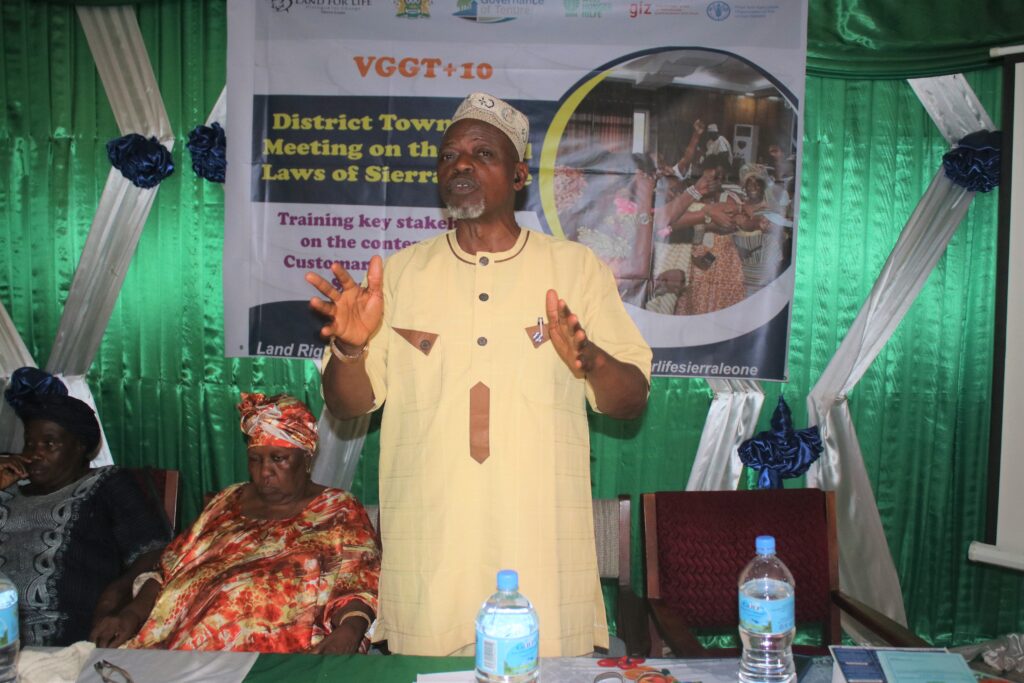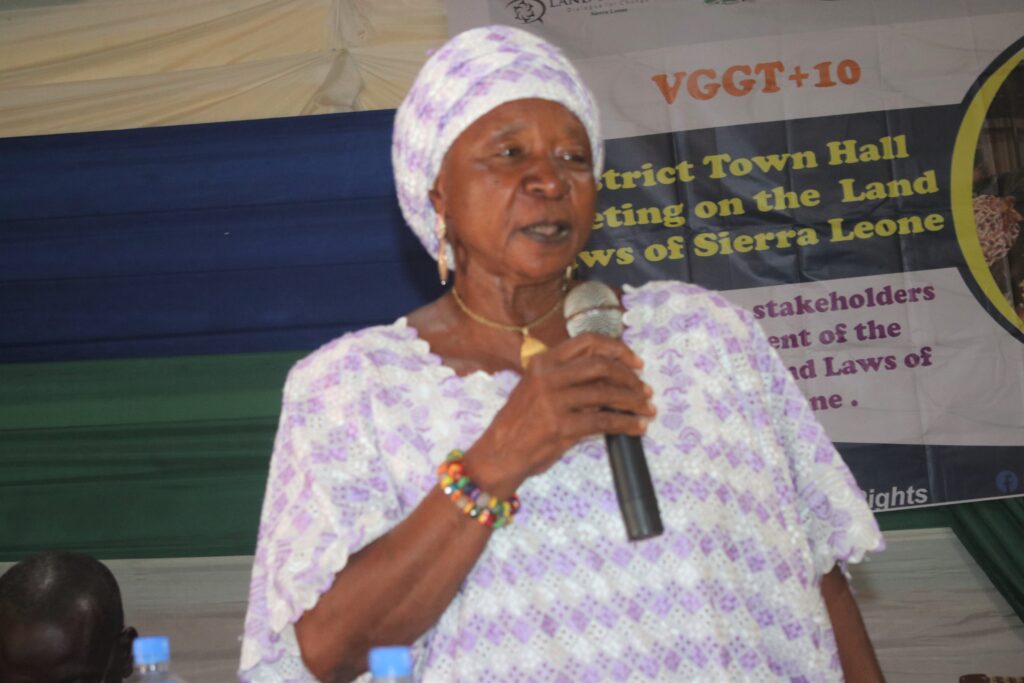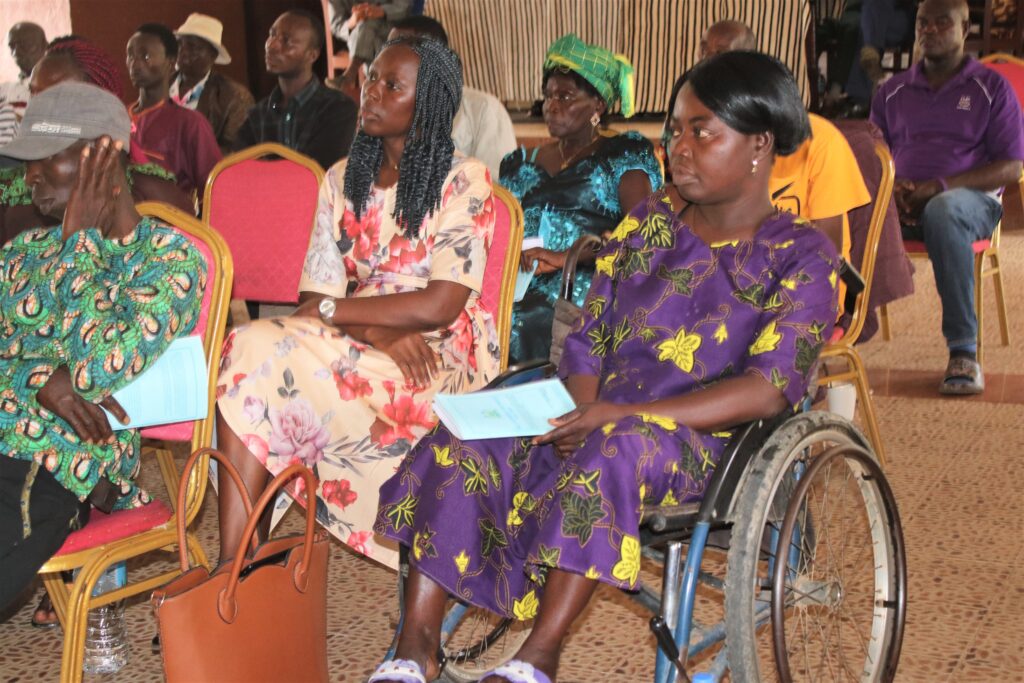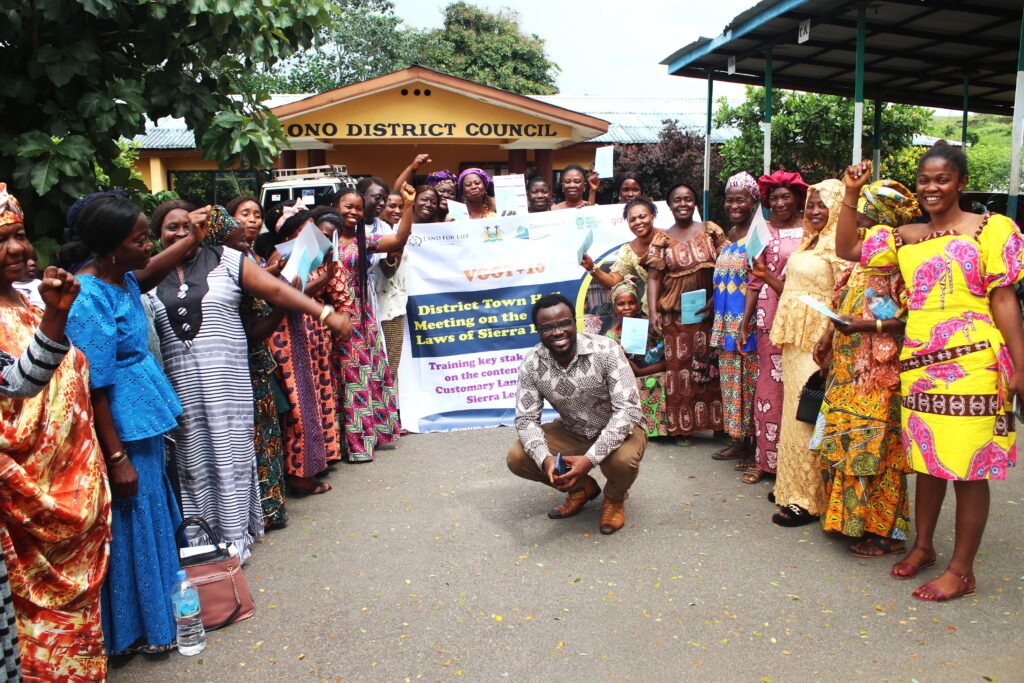EDUCATING KEY STAKEHOLDERS AT THE DISTRICT LEVEL ON THE CONTENTS OF THE CUSTOMARY LAND LAWS OF SIERRA LEONE
When Land for Life conducted the People’s Land Conference in May 2023, major stakeholders and landowners who participated offered many recommendations. Among the recommendations was for similar training gestures to be cascaded at the district level.
As an entity that thinks that the individuals for whom the laws were intended would be directly reached, a training plan was developed. For starters, five districts were identified: Kono, Moyamba, Pujehun, Kailahun, and Kambia. The selection of these districts came as a result of recurrent confrontations between crop farmers and cattle rearers, as well as a number of mining and agro investments in many places across the selected districts.
To ensure that the training had the required participation and outcomes, Land for Life collaborated with the District Councils of the selected districts. In each district, 60 participants were chosen from the district headquarters towns and chiefdoms within the district. The training drew a well-balanced group of participants: men and women with stakes were fully represented.
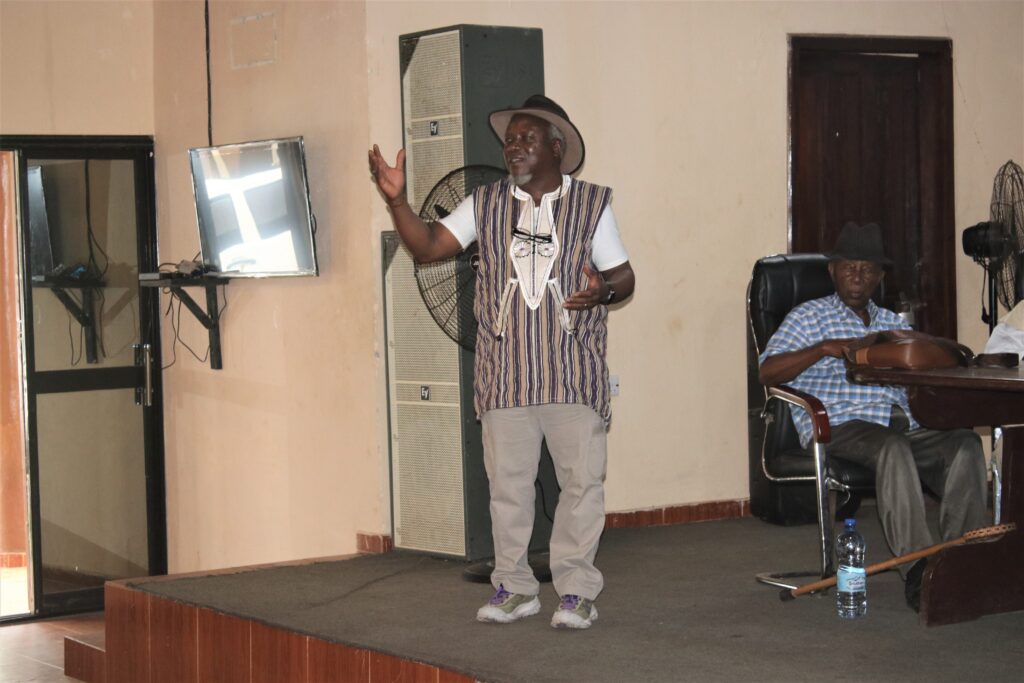
Updating participants on the path that led to the enactment of the new land laws, Mr Abu Brima, Executive Director of Network Movement for Justice and Development (NMJD) and Convener of Land for Life, guided the attendees through some of the measures that contributed to the passage of the two land laws. Mr Brima remarked that Sierra Leone’s Land Reform initiative began in 2005, when the government enacted its first Land Policy. However, he stated that the policy input was not participatory, and the Ministry declined to adopt it. According to him, the VGGT process aims to restore rationality to land, forestry, and fisheries governance. The Voluntary Guidelines on the Responsible Governance of Land, Fisheries and Forestry (VGGT) was introduced in Sierra Leone in 2012, and the implementation began in 2014. Mr Brima further mentioned that the Customary Land Rights Acts of 2022 like the Land Policy of 2015 captured key components of the VGGT guidelines. He noted that“Policy alone cannot create the necessary changes in a country. Therefore, there was a need for an Act of Parliament”
Berns Komba Lebbie, the National Coordinator for Land for Life, was the primary facilitator for the training. Berns walked the attendees through the history of Sierra Leone’s land laws. He said that Sierra Leone’s land tenure structure is dualistic in nature, with customary land and land inside the Western Area (Freetown). He said that the Customary Land Rights Act intends to particularly address land outside of Freetown. The primary facilitator went on to say that there have been land conflicts all around the country over the years. Badland administration laws, he claims, are one of the causes of such conflicts. Many of the women wanted to know what the law says about widows and divorce rights to land including crops and animals of their husbands. Berns Komba Lebbie quickly responded that the Customary Land Rights Act, 2022 cannot answer all of their questions; however, other laws, such as the Estate Devolution Act of 2007 and the Gender Equality and Women Empowerment Acts of 2022, seek to protect the estate rights of women, particularly widows and divorcees.
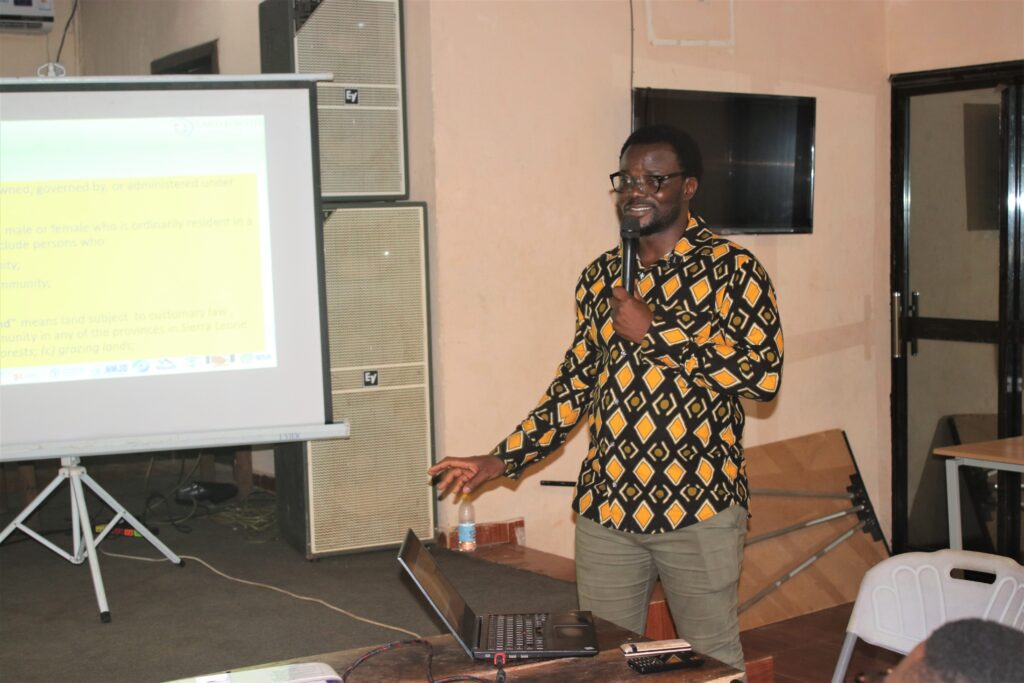
Paramount Chief Toroheh Foyoh-Chairman Council of Paramount Chiefs in Kono District Said that it is the responsibility of everyone to understand the content of the land laws of Sierra Leone. The Chief committed that he and other chiefs in the districts will support people to better understand the content of the law as it is related to their customs and traditions. As a paramount chief, he believed that the laws were there to ensure that there was a proper way of dealing with land issues. He said that when it’s time for the government to set up the Village and Chiefdom Land Committees, they will support vulnerable groups to be part of the committees. The chief, however, raised concerns about some of the challenges that they face when dealing with land issues.
Sawio Vandi, the Mamie Queen of Kailahun District, praised and commended Land for Life and all people who attended in the programme for their willingness to remain and learn about Sierra Leone’s land laws. The Mamie Queen stated that on behalf of the women of Kailahun District, she would guarantee that the awareness of laws did not stop at the District Council Hall but spread to the other chiefdoms in the district. She stated that more women needed to be educated on the content of the the law. She asked Land for Life to keep them updated when the different village and chiefdom land committees are created.
